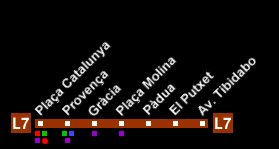| |
Plaça
Catalunya |




|
(1863/1929)
- Huge central square built as a bridge between old and new town and obviously
named after the country of which Barcelona is the Capital. There are actually
4 stations underground: L1, L3, the terminus station for the FGC urban
and suburban lines (5 platforms) and a RENFE Suburban Rail station parallel
to L1.
|
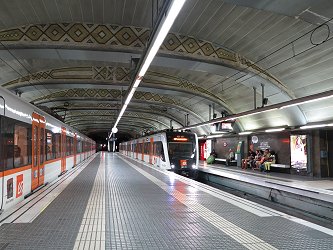
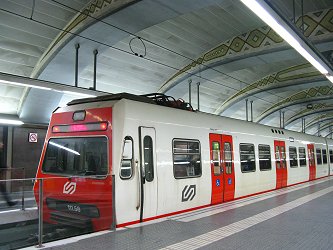
|
| |
Provença
|



|
(1882/1929)
- Street named after Southern French region 'Provence'.
Underground
corridor to metro station 'Diagonal'.
|
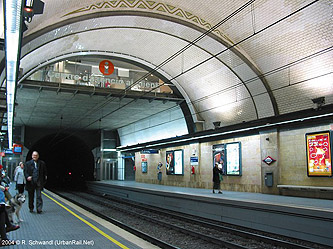
|
| |
Gràcia
|
 |
(1863/1929)
- District of Barcelona
|
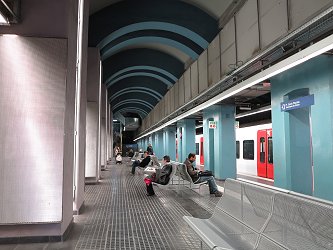
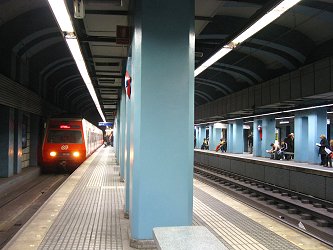
|
| |
Plaça
Molina |

|
(1954) -
Square named after a 19th century architect, Francesc Daniel Molina i
Casamajor.
Station located
just next to Sant Gervasi station on L6.
|
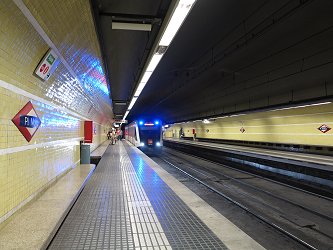 |
| |
Pàdua
|
|
(1954) -
Street named after a town in Italy, Padova.
|
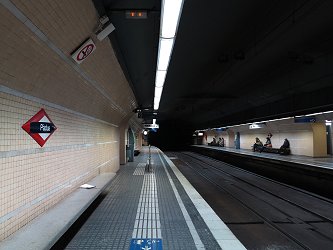 |
| |
El
Putxet |
|
(1954) -
actually means low hill, and there is one with that name.
Future interchange
with L9
|
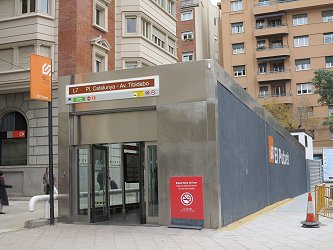
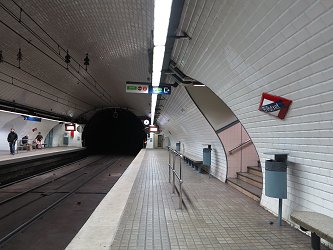
|
| |
Avinguda
Tibidabo |
|
(1954) -
Tibidabo is the name of the mountain you can go up from here. First take
the 'Blue Tramway' (Tramvia Blau) and then the funicular and you'll get
the best view over Barcelona. The name actually is Latin for 'I shall
give you' ... this piece of land - legend has it that a bishop of Barcelona
said so to a monk who wanted to build his hermitage up on the mountain.
|
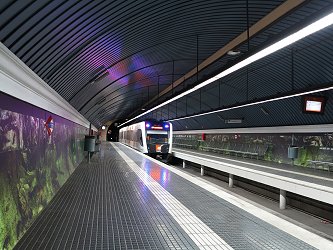
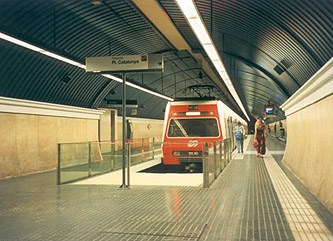
|
Special
Features of Line L6:
Total length:
4 km, 7 stations
European standard
track gauge of 1435 mm
Operated by FGC
(Ferrocarrils de la Generalitat de Catalunya)
Sharing tracks
with line L6 and suburban services between Pl. Catalunya and Gràcia.
The original line
was put underground in 1929 up to Muntaner on line L6, the completely underground
branch to Av. Tibidabo being built in 1954.
2008 © UrbanRail.Net
(Robert Schwandl)
